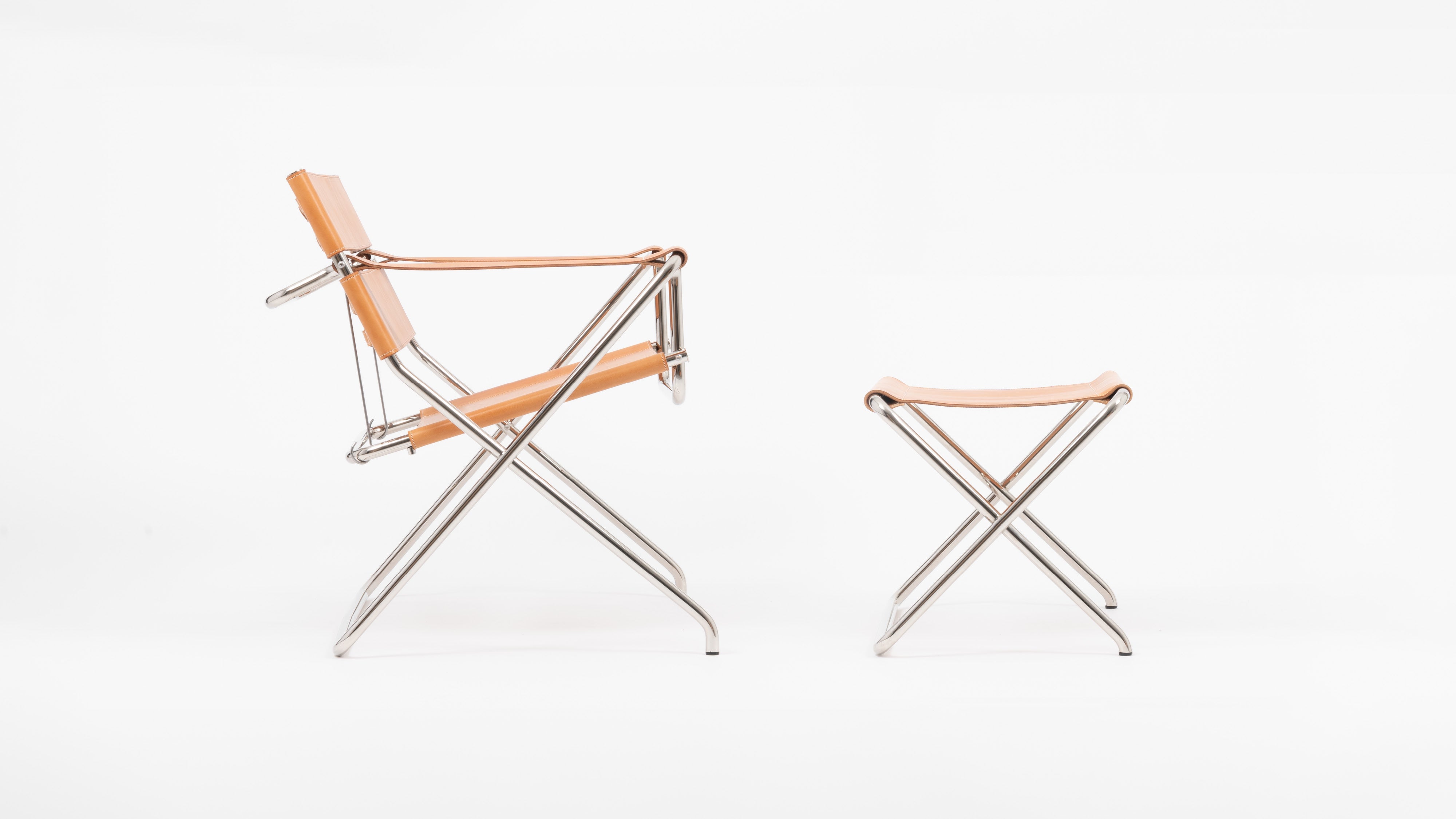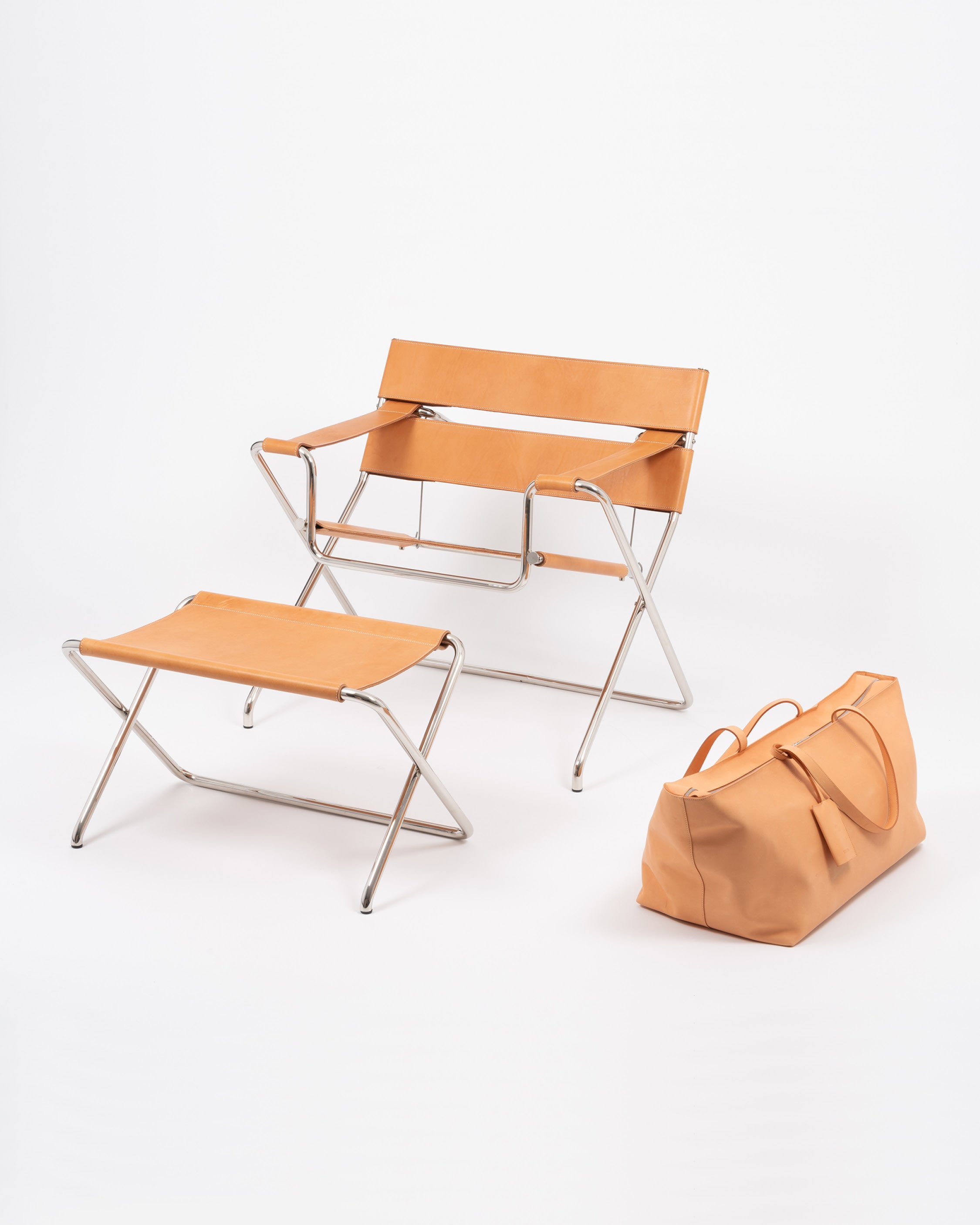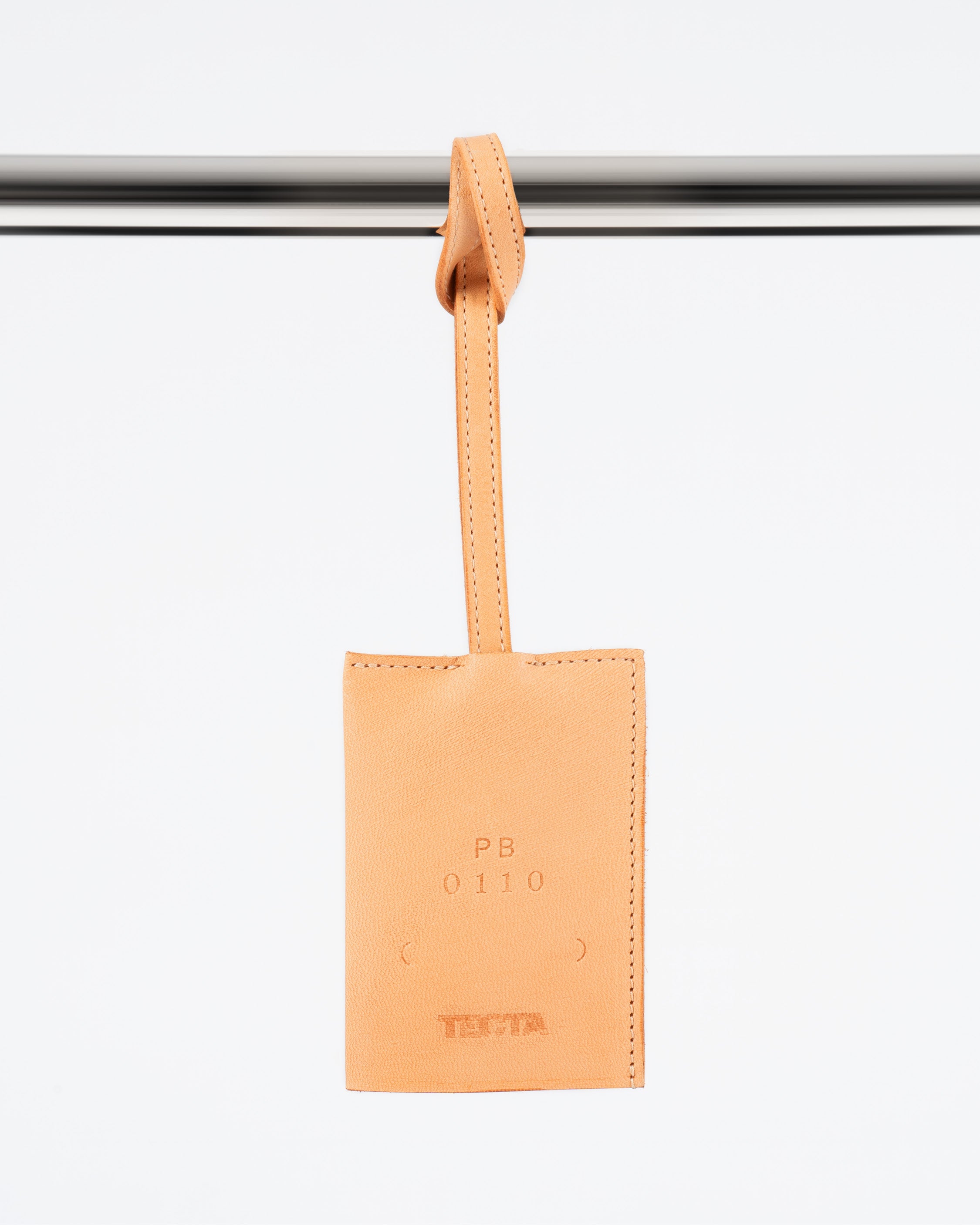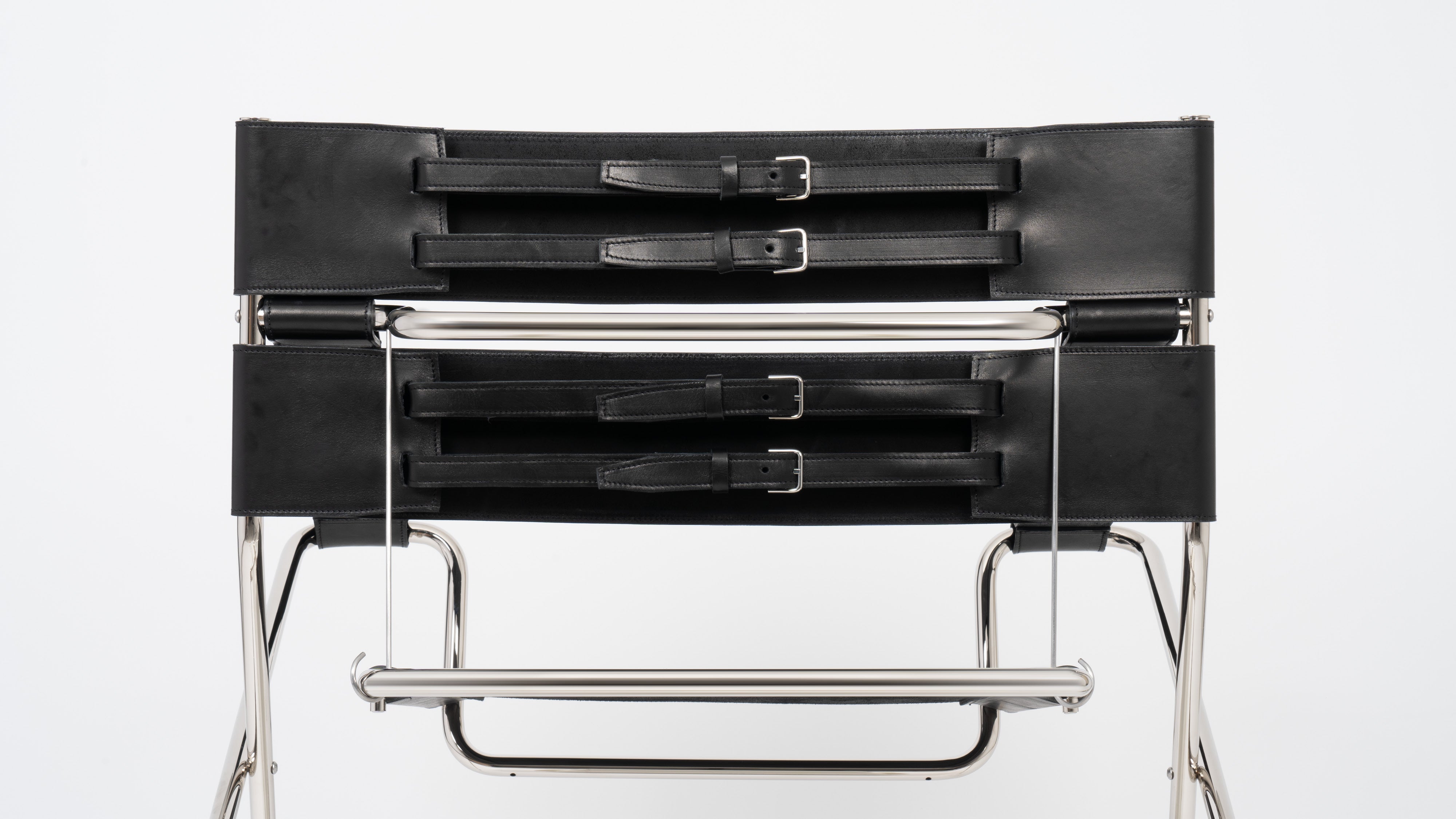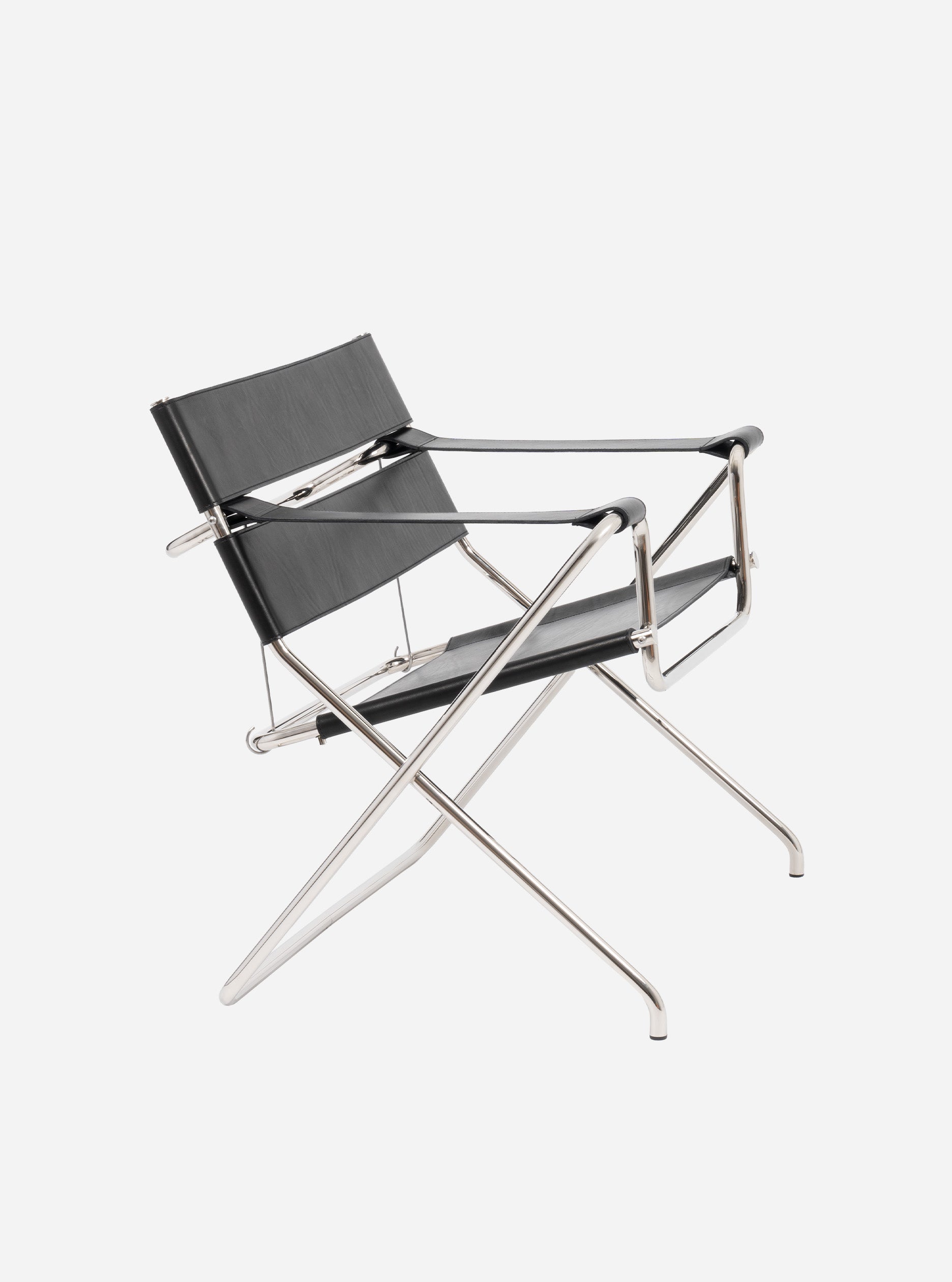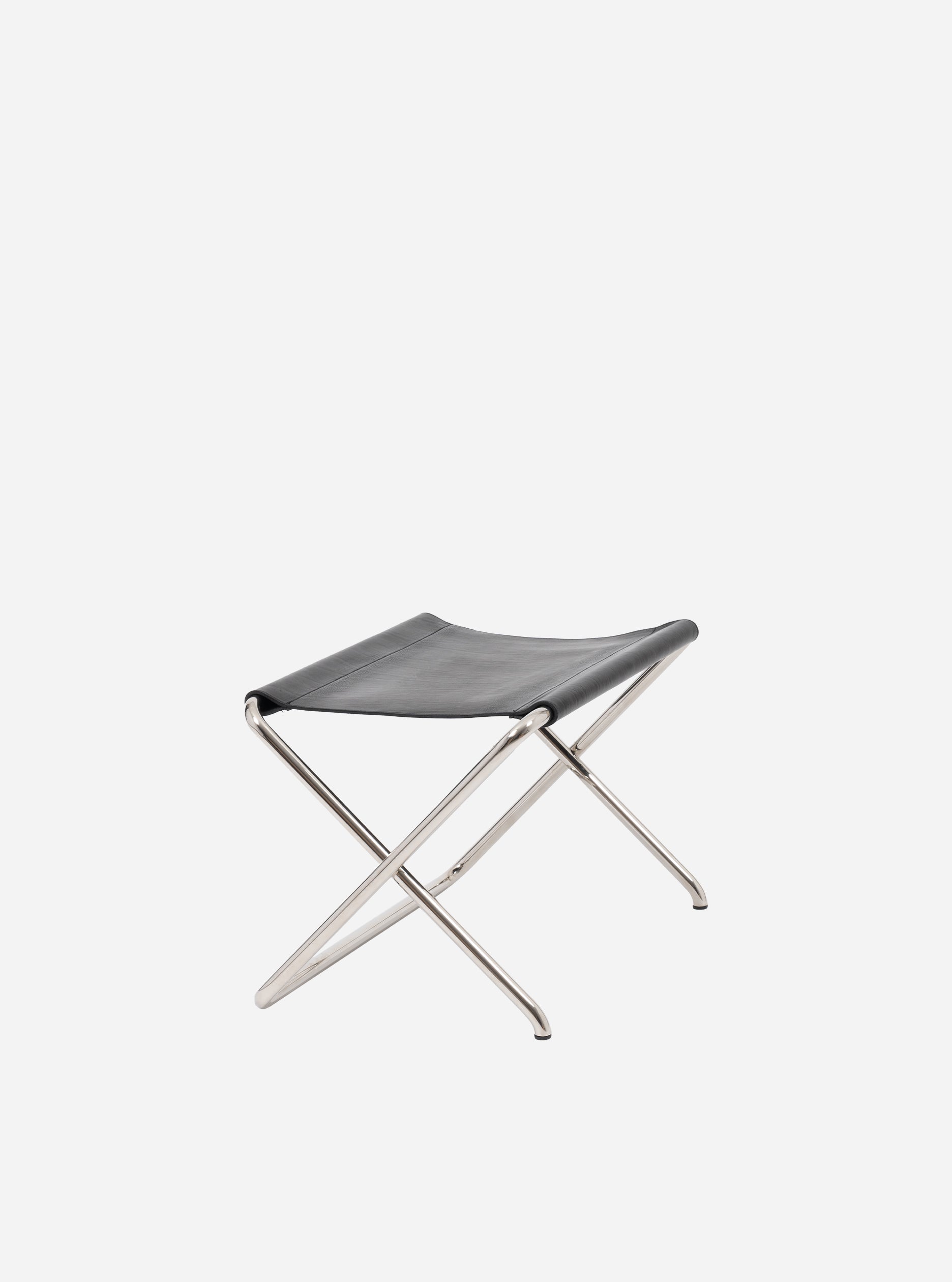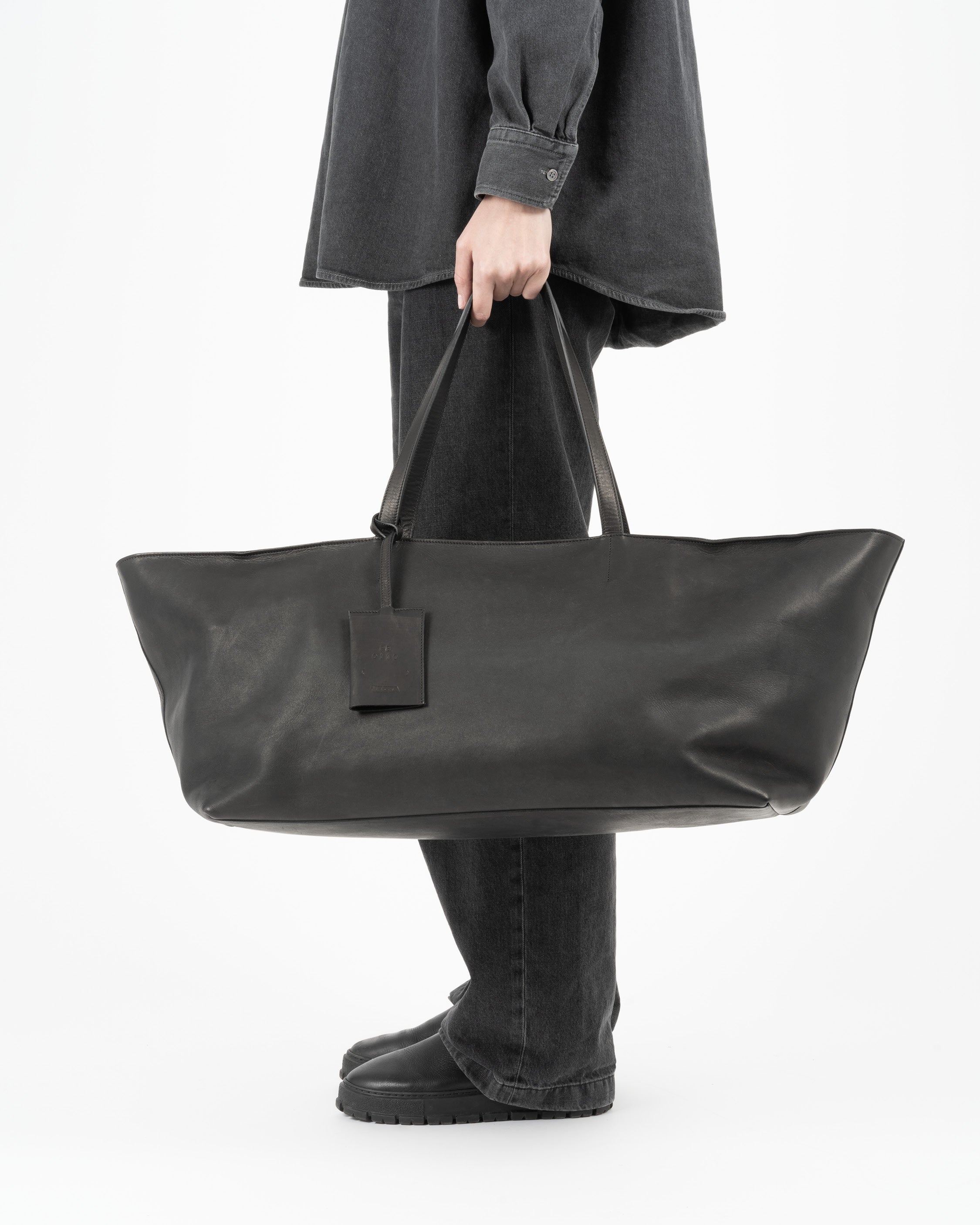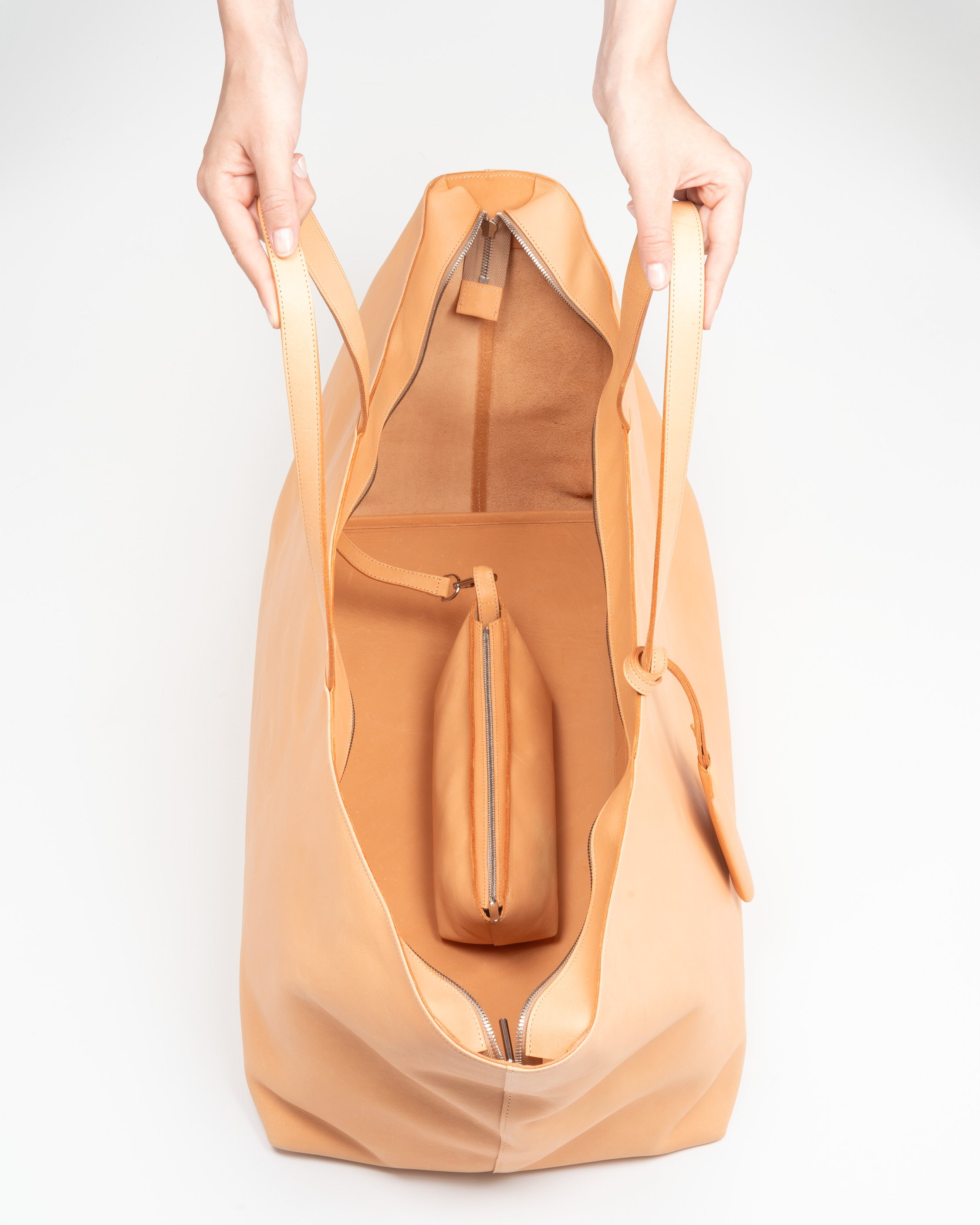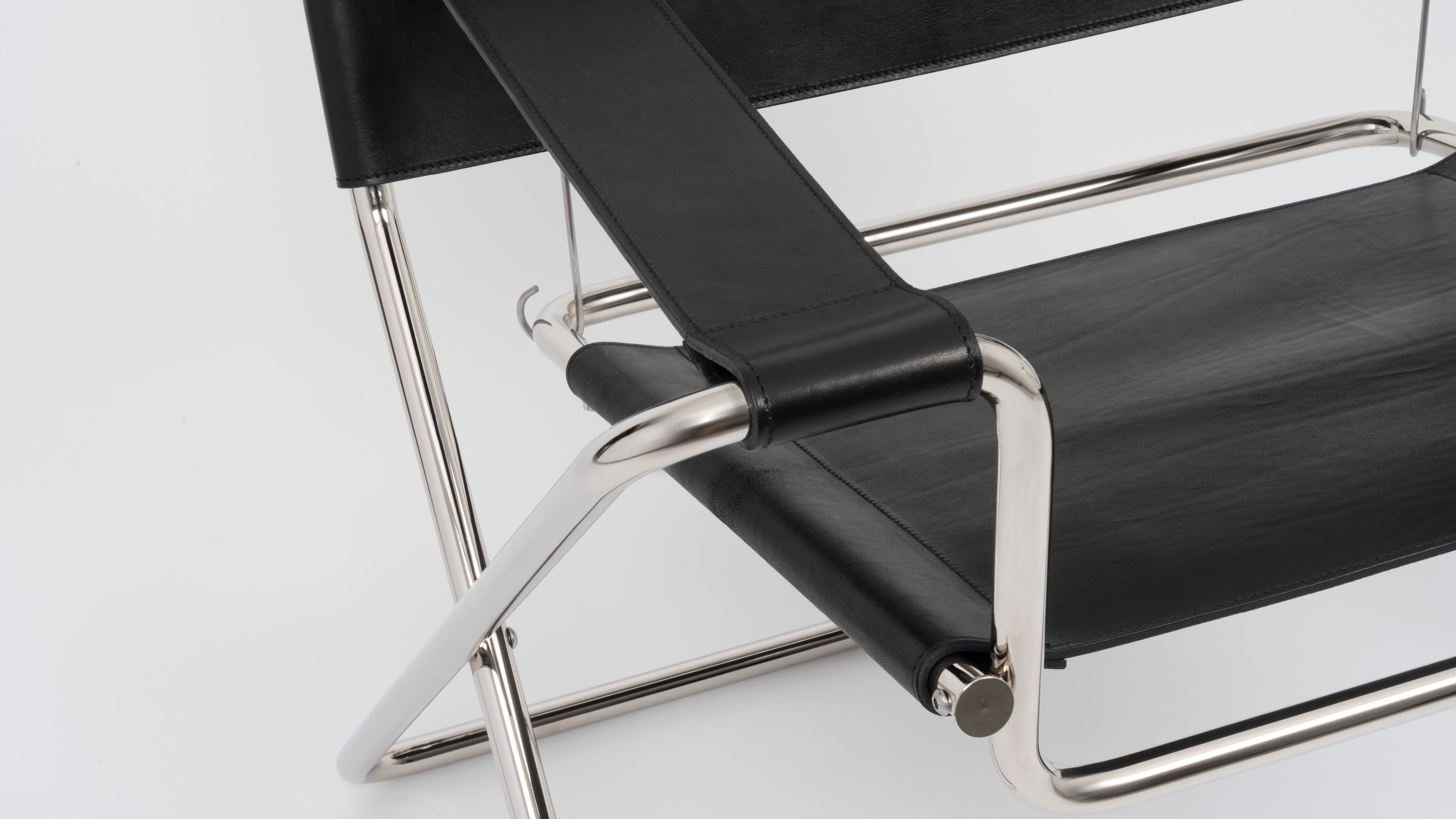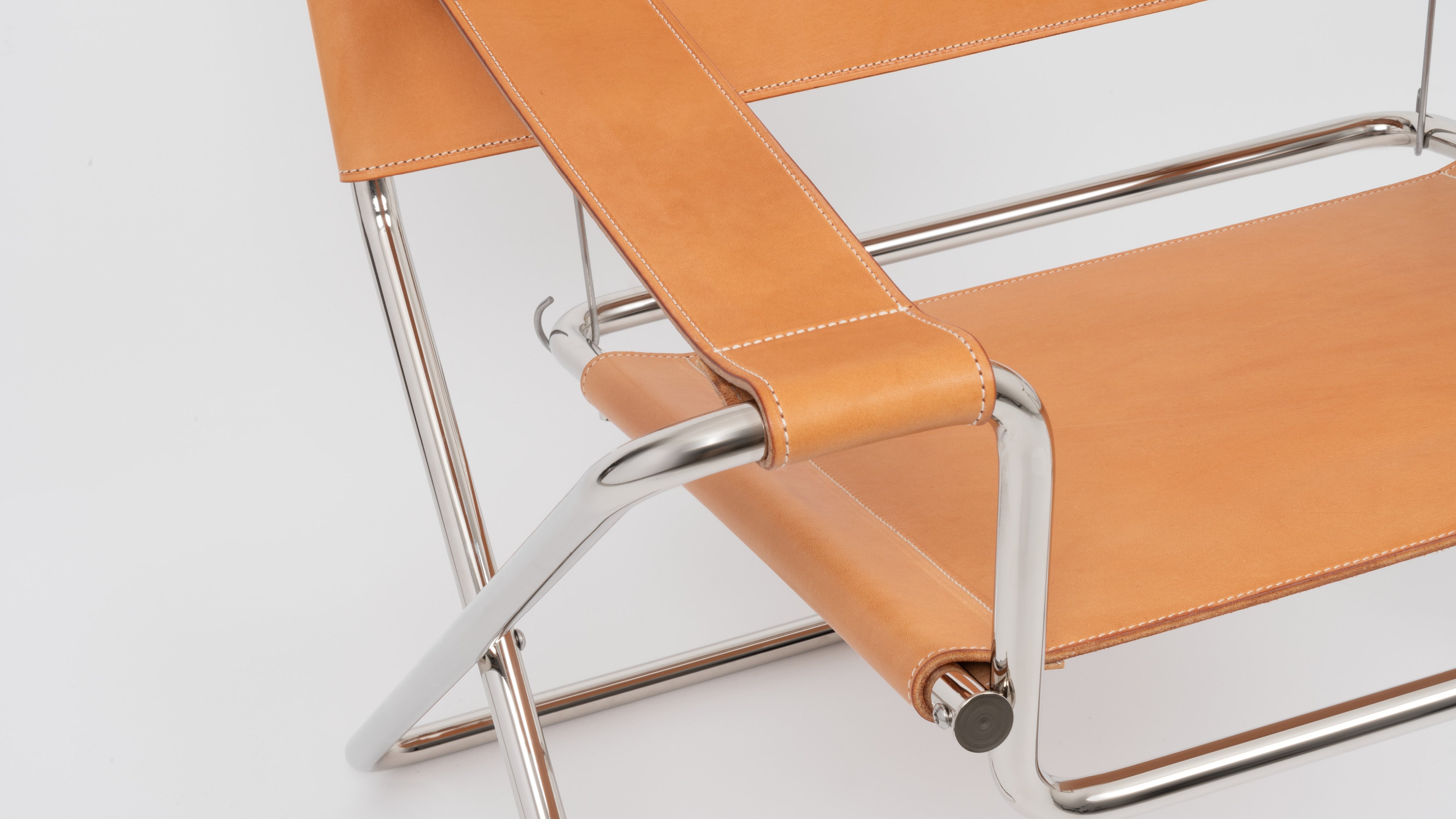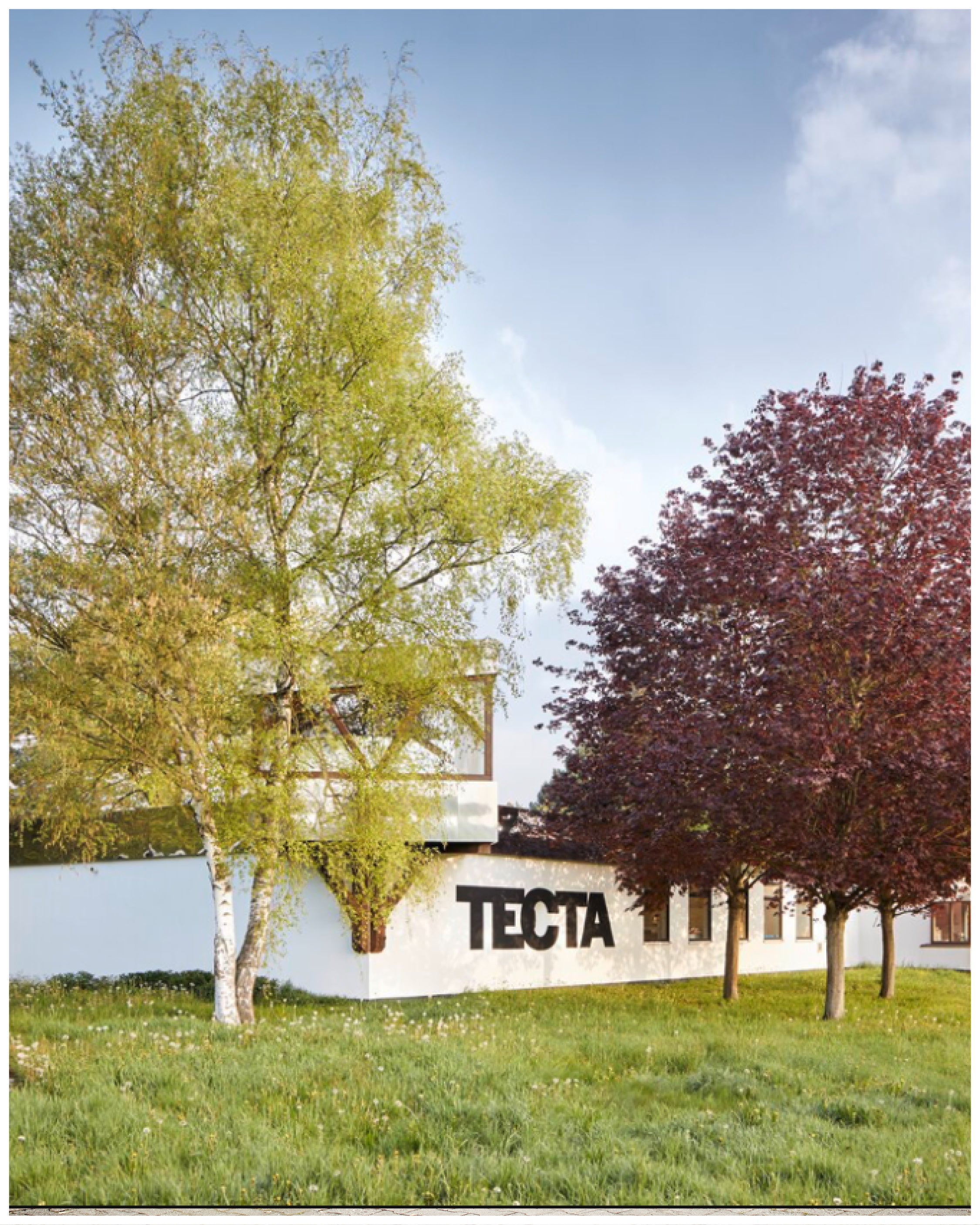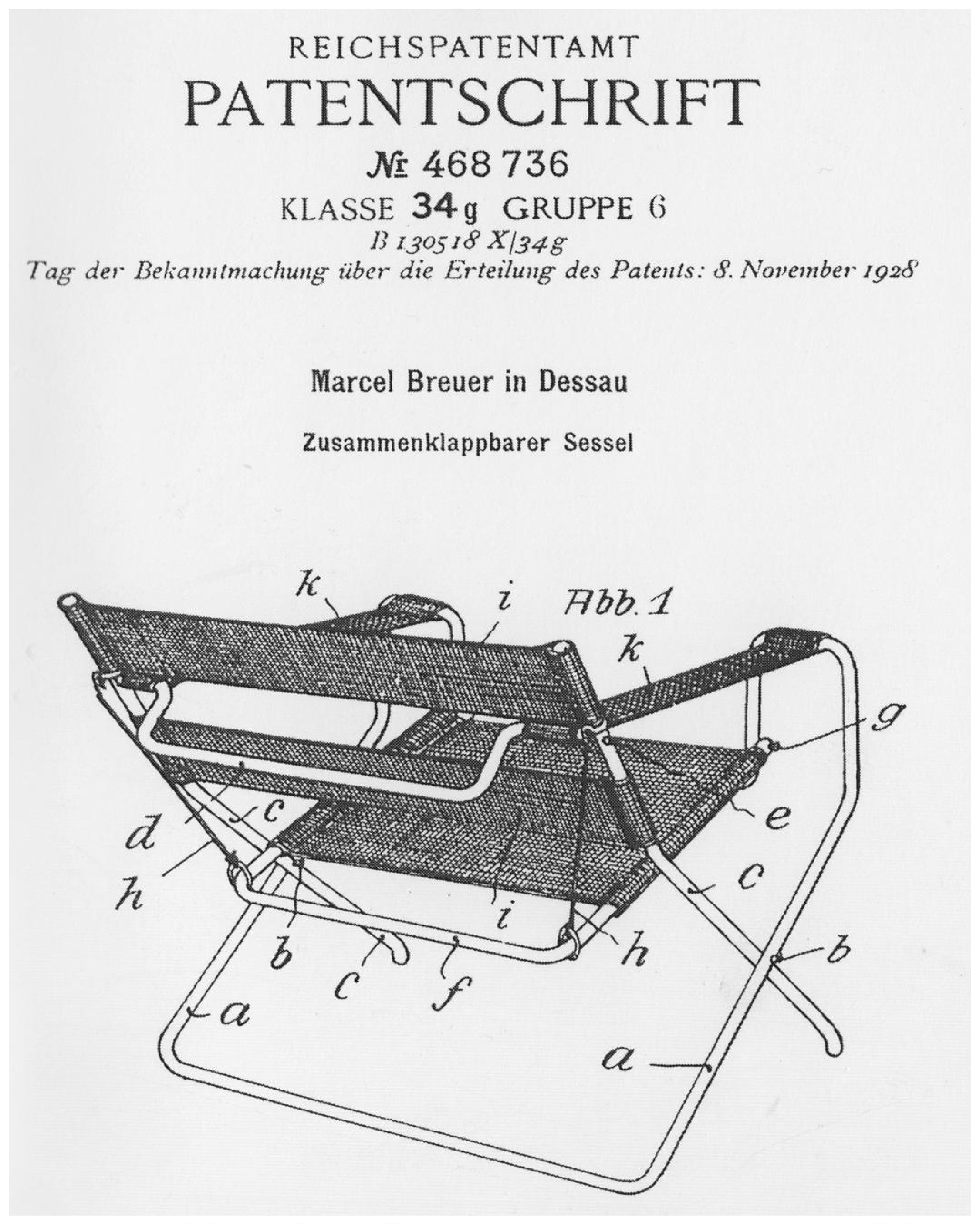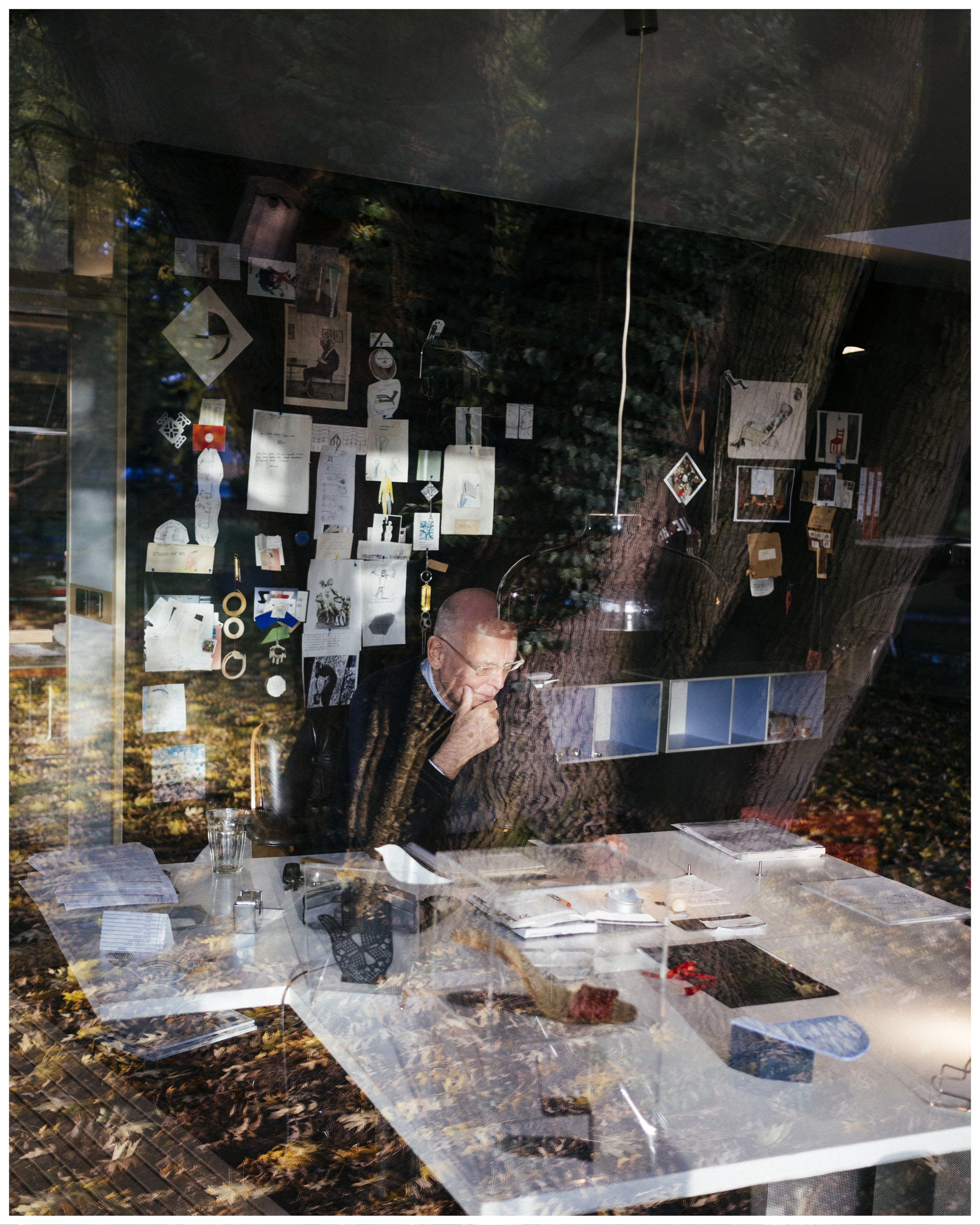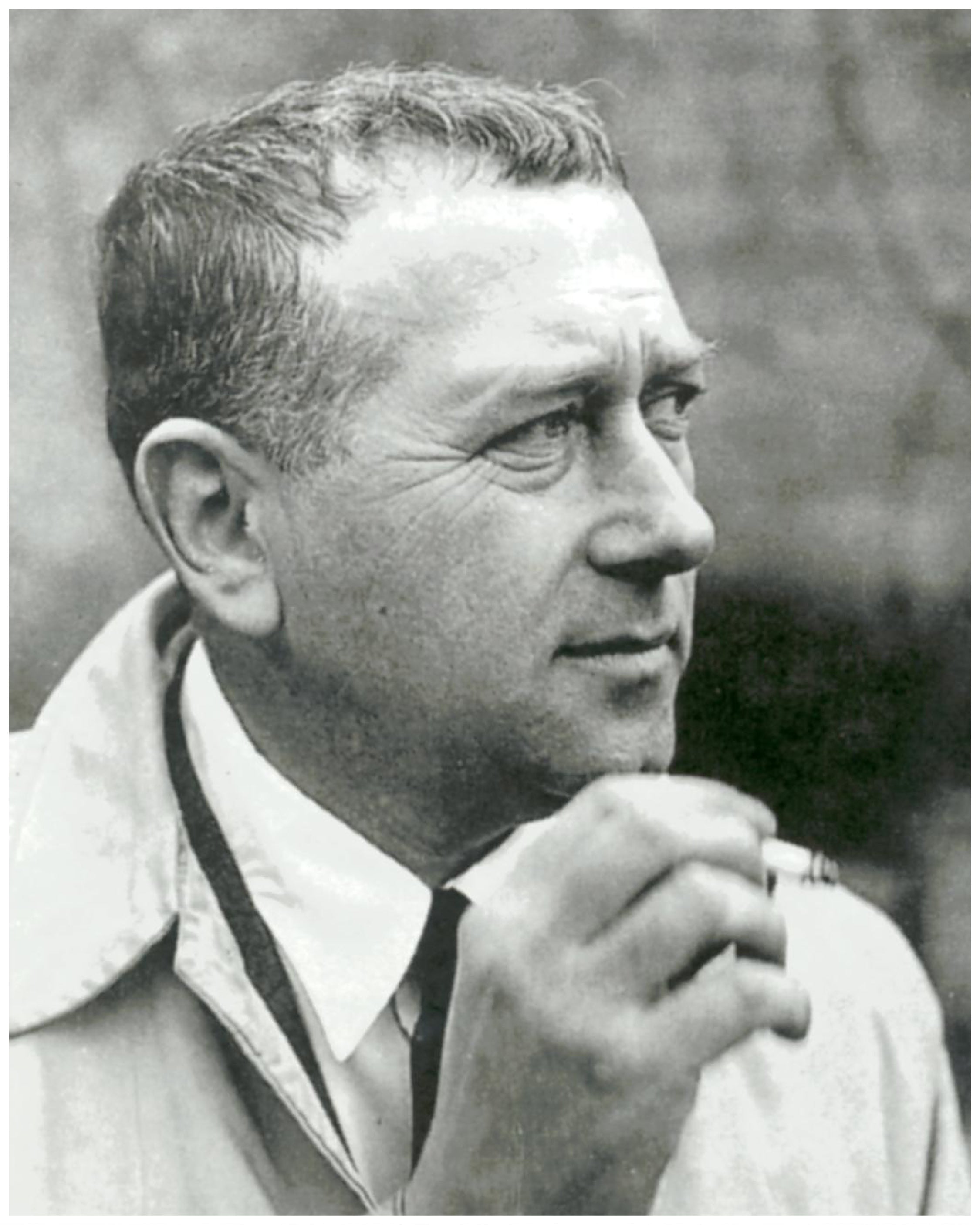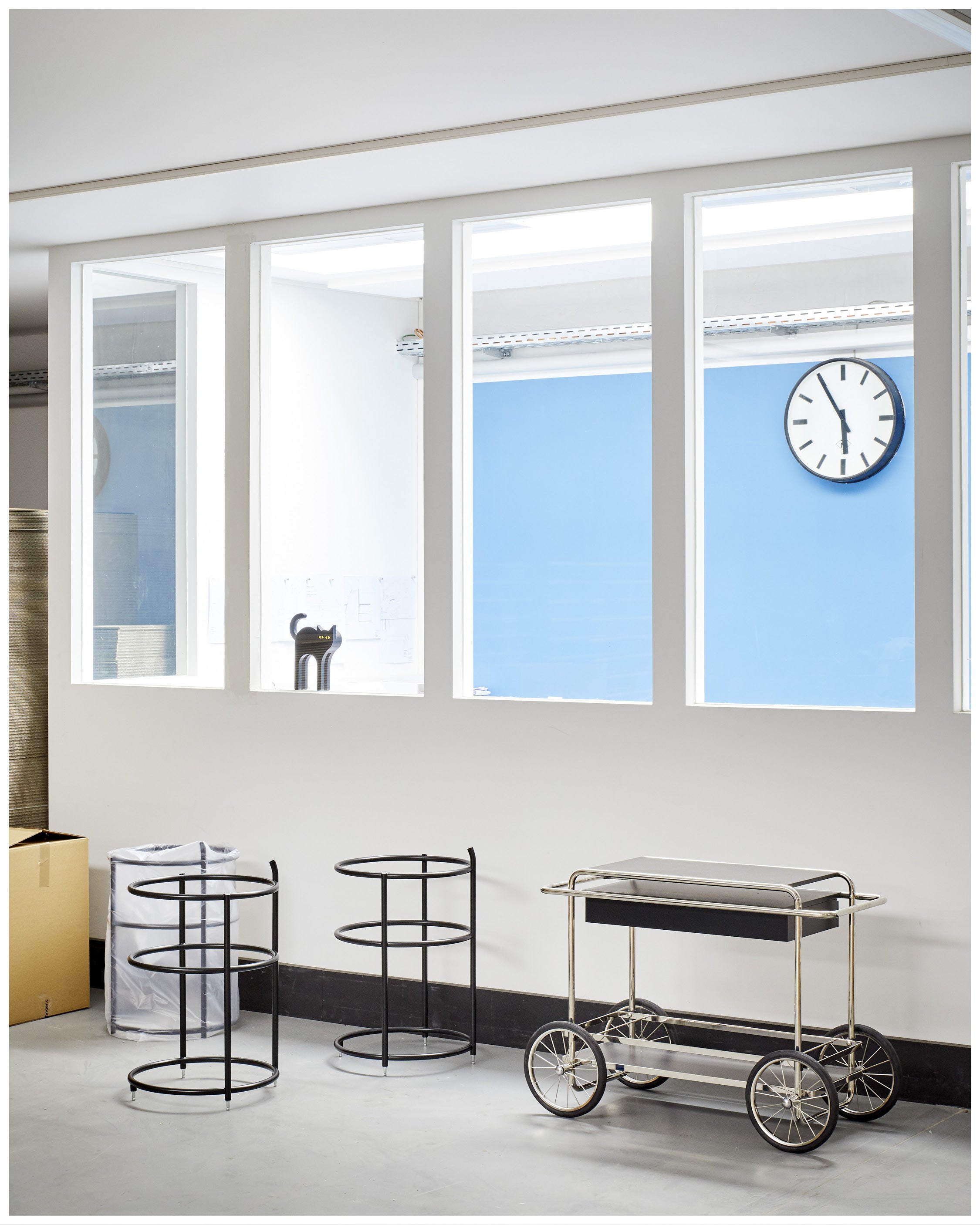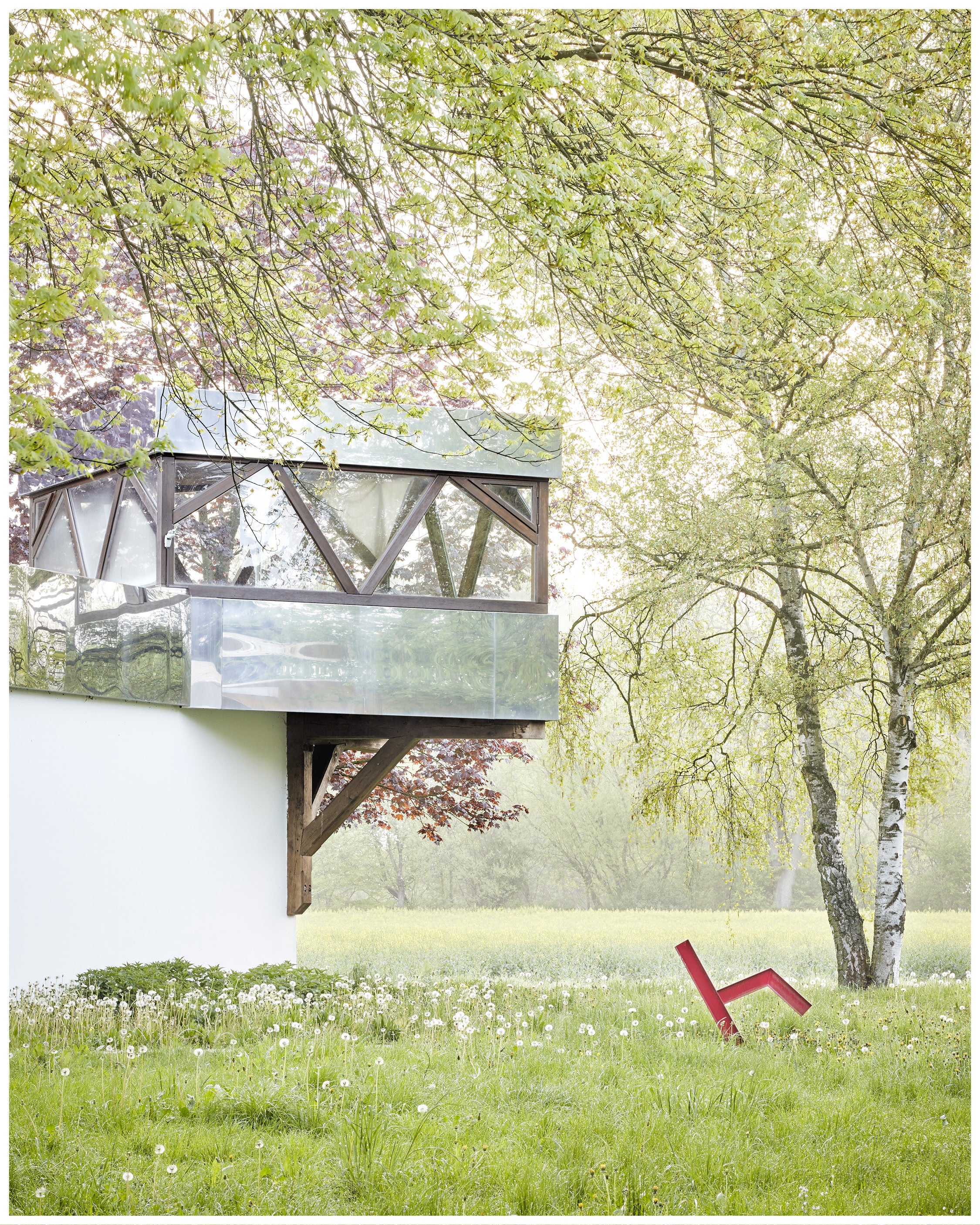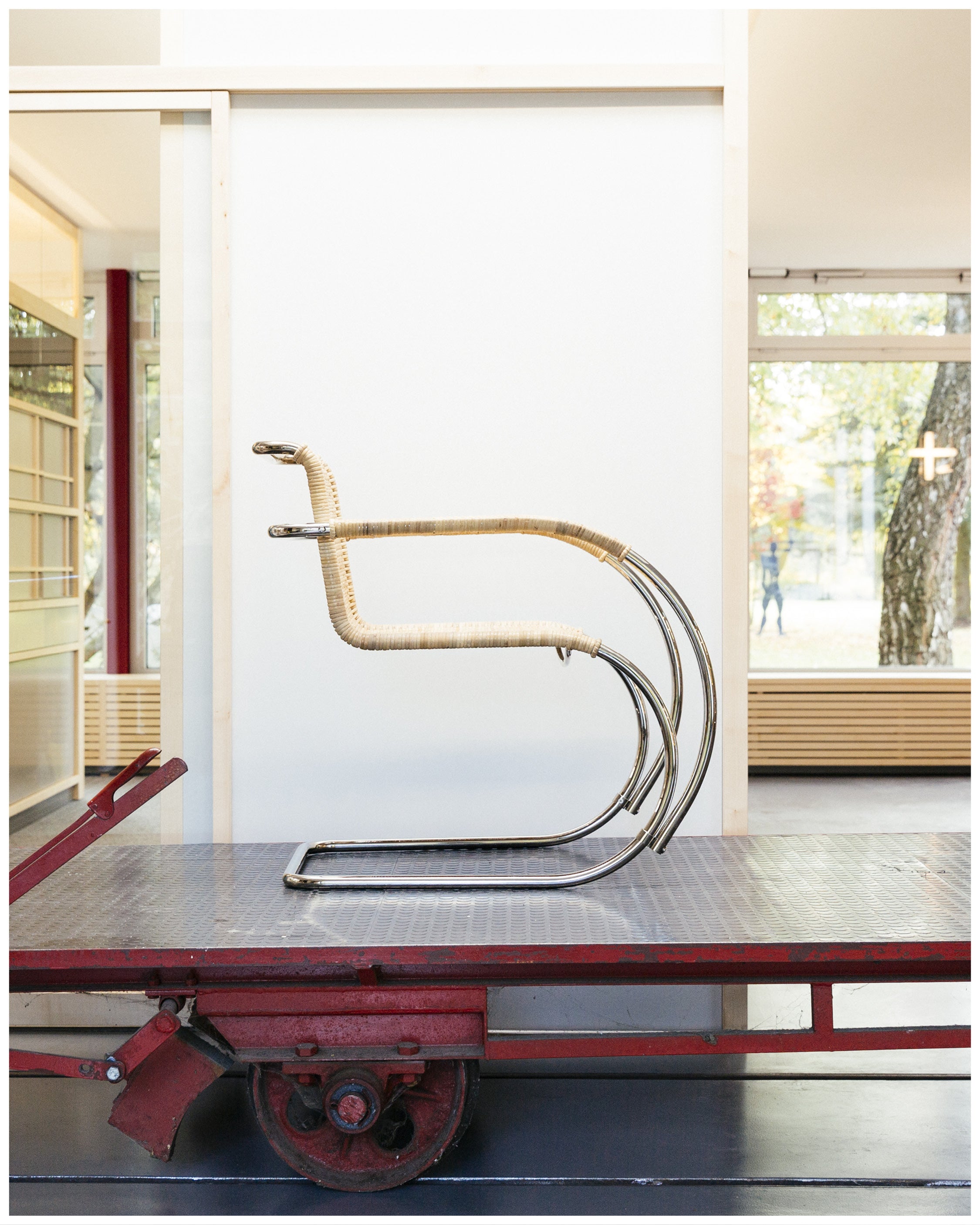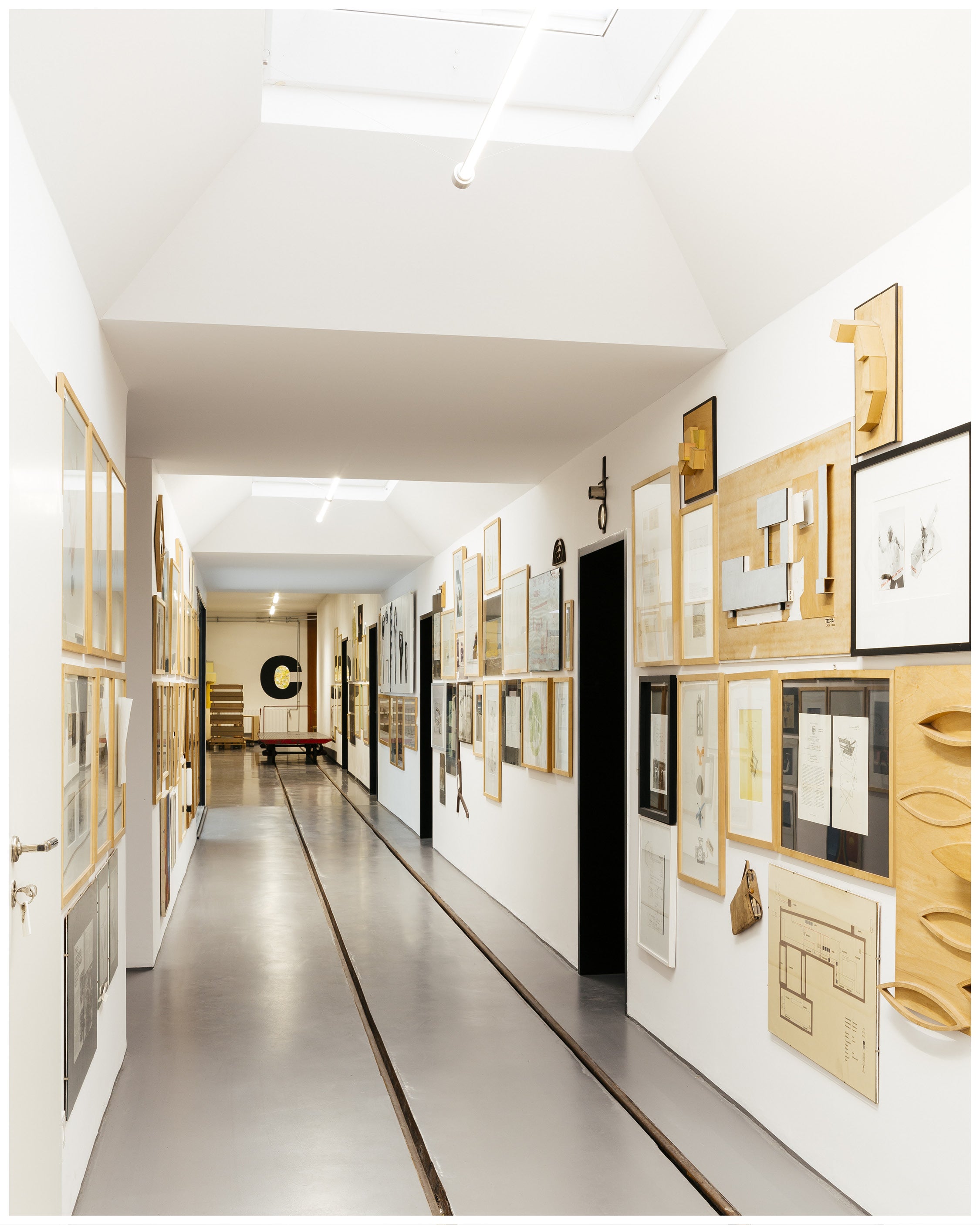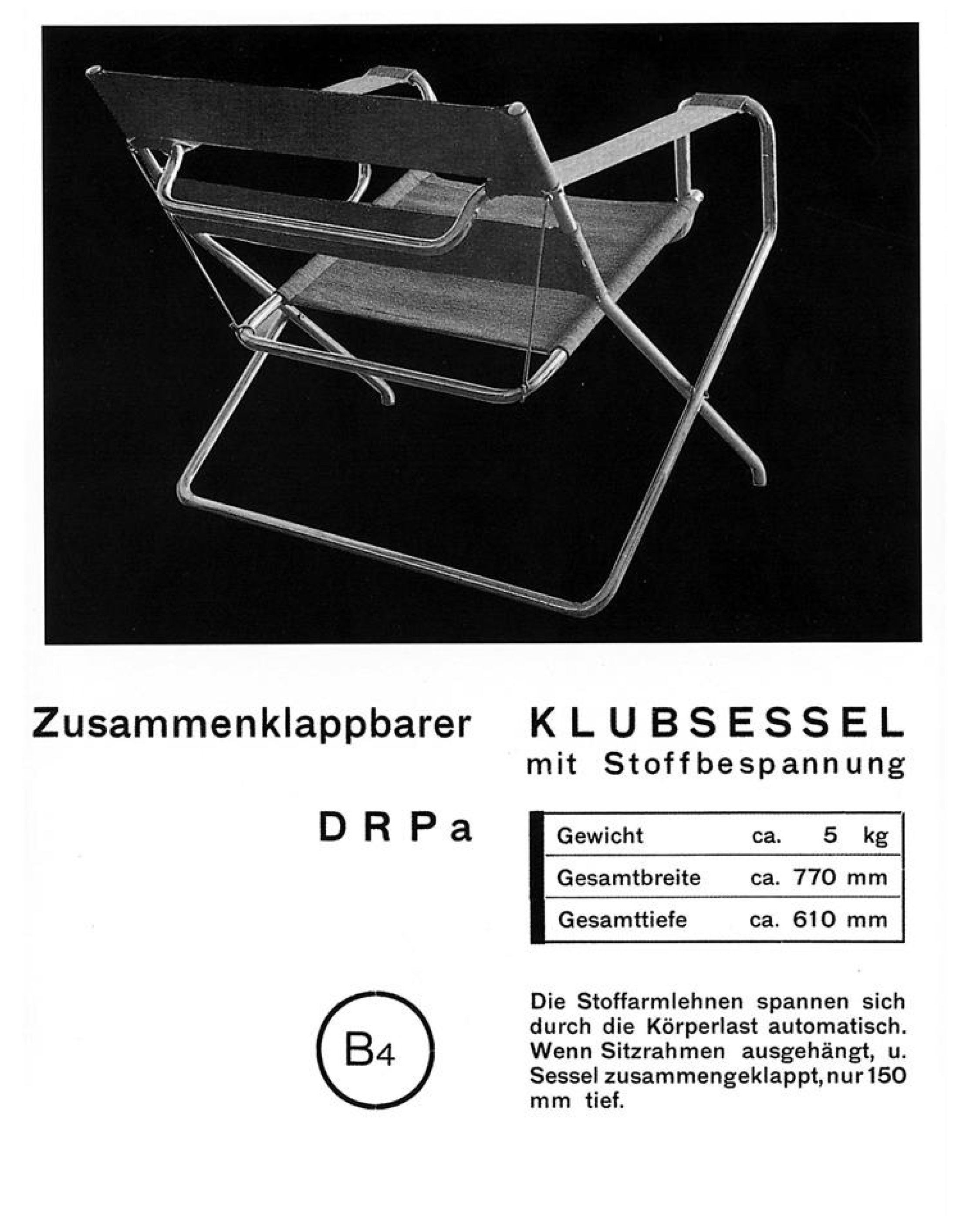PB 0110 x TECTA
The working title of the collaboration between the German furniture brand TECTA and PB 0110 was 'Home Work.' We were guided by the idea of how we work at home today and how the places and work situations have significantly changed over the last decade. An ensemble of three objects has emerged: the foldable tubular steel club chair D4 by Marcel Breuer from 1927, upholstered with our leather, a new mobile stool, and a side bag that stands like an object in the room and can function as furniture or a travel bag from room to room or for longer trips. For the design of the new elements, I invited the Munich-based artist and designer Ayzit Bostan.
The D4 by Marcel Breuer immediately caught my attention. Its timeless design, which is still remarkably modern and light almost 100 years later, is made from just two materials: Tubular steel and fabric or leather. It is made in Germany, easy to repair, space-saving and, for me, an outstanding example of sustainability. The designer Ayzit Bostan has redesigned the cover of the backrest with elements from the PB 0110 collection.
Originally created in 1926/27 and recommended for various outdoor areas such as tennis courts, its applications today go far beyond the original frame. The history of the D4 at Tecta began in the mid-1970s when Axel Bruchhäuser rediscovered Breuer's design while researching literature and contacted Breuer. He told him that the folding chair was much more beautiful than its sled-shaped counterpart and that it absolutely had to be produced. Breuer was delighted with the discovery of his design and wrote back: ‘The appearance of this chair is like a long-forgotten dream.’
In 1980, the D4 became part of the permanent collection of the Museum of Modern Art in New York. The original piece, upholstered in horsehair fabric, is now in the Kragstuhl Museum at Tecta's headquarters.
In addition to Breuer's design, Ayzit Bostan came up with the idea of a folding stool as a mobile work element.
The idea of the bag arose from the changed work situations. The workplace moves through the house, at the writing or kitchen table, on the sofa, or in bed – work is done everywhere. With the bag, we wanted to create a mobile object that can stand in the room like a piece of furniture or a travel bag that moves from room to room. Of course, it also functions as a weekender for longer trips.
Ayzit Bostan's bag, like Marcel Breuer's design, also consists of only two materials. With a wide base to accommodate a laptop, magazines, or notebooks, and equipped with interior compartments and a separate case to hold cables, mice, writing utensils, etc.
All three objects are made from exceptional leather quality. A very natural and lively leather was selected, which ages beautifully and contrasts with the hard, warm-shining tubular steel. The ensemble is made from the same natural leather quality. This was a challenge because the bag is made with approximately 1.5mm thin and supple leather, while the chair and stool required thicker, 3.5mm material.
Both were found at Lake Constance in a family business that has been traditionally tanning with vegetable substances and without chemicals and heavy metals since 1888. The tannery is located on the Bahnhofstrasse of a German small town, which is a testament to the fulfillment of all ecological requirements. The tannery is run by father and son, and the grandfather still occasionally stops by.
All three objects in the trio have the potential to become lifelong companions.
Kindest, PB
ABOUT TECTA
Tecta is a family-owned company led by Christian Drescher, now in its fourth generation. Everything at Tecta revolves around the preservation and further development of relevant ideas of modernism, as they originated at the Bauhaus in Weimar or Dessau. Over the past 40 years, an extraordinary collection has developed, designed by equally extraordinary personalities such as Walter Gropius, Mies van der Rohe, Marcel Breuer, Jean Prouvé, Stefan Wewerka, Karl Friedrich Schinkel, Kathrin Greiling, or Wolfgang Harthauer. Many of the products have been included in renowned international collections. All designs are manufactured at the company's headquarters in Germany, which is nestled amidst green meadows and next to a futuristic museum building by the Le Corbusier students Alison & Peter Smithson. About the museum, Barry Bergdoll, the former chief curator of the MoMA in New York and a jury member of the Pritzker Prize, says: "For me, this is one of the most essential and authentic collections of modern design."

